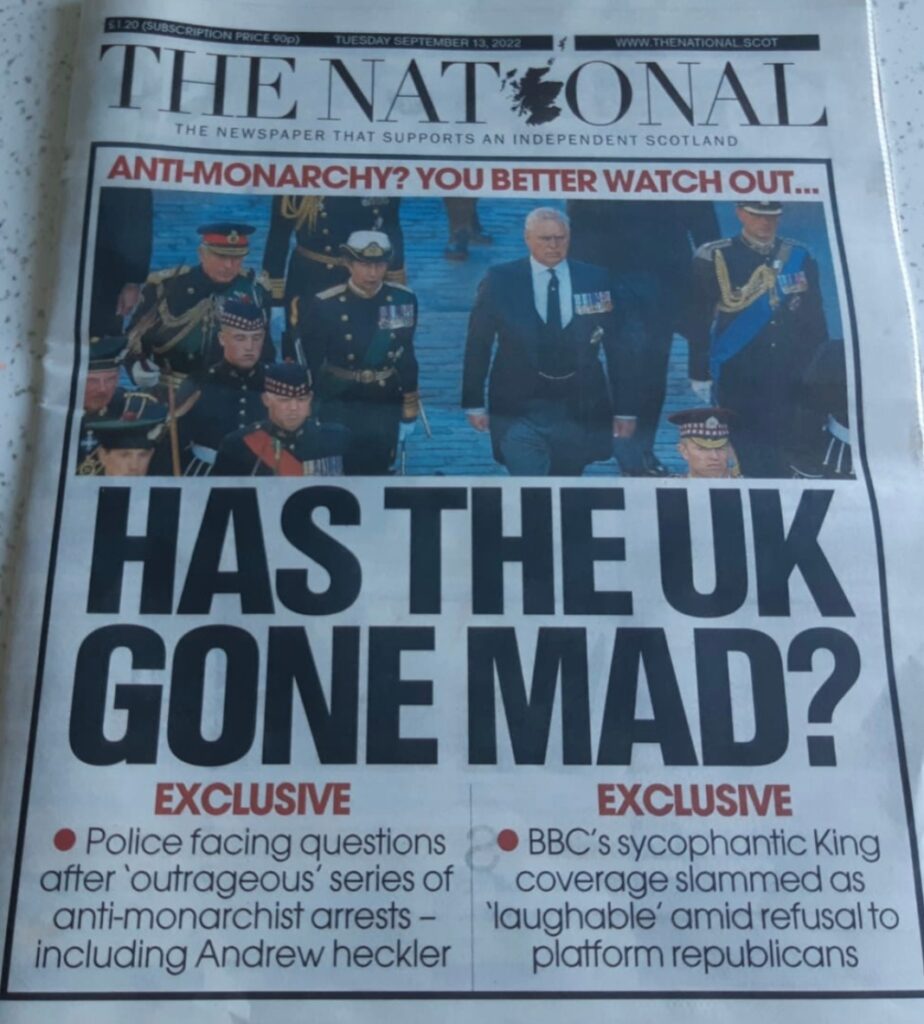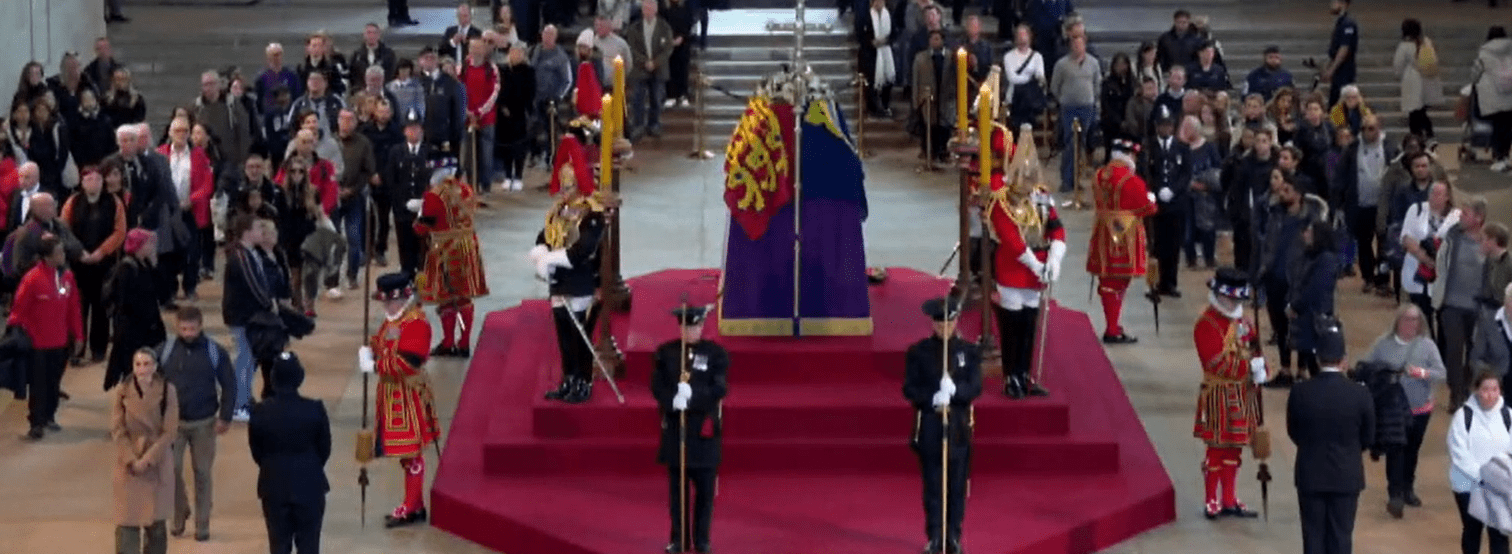By Gray Allan, Falkirk Labour Party member
Socialists have little regard for the United Kingdom’s so called constitutional monarchy. It is seen as a hangover from the days before universal suffrage, when the authority of the State sprung from the Crown. The transition from a constitutional monarchy to a republic is long overdue. But a strong support for the Crown among all layers of society has always been assumed and for this reason the call for a republic has never had a high priority on the left.
The death of the 96-year-old Queen Elizabeth II on September 8 was hardly unexpected. Plans for her state funeral, code-named “London Bridge”, had been in preparation for years. These plans were a concoction of centuries old tradition, nineteenth century inventions and the personal wishes of the late queen.
The mainstream media dusted off their effusive obituaries and celebrations of the life, gave wall to wall TV coverage, reminiscences from royal confidantes, and even ordinary folk who had ever met the Queen. Foreign dignitaries come on screen to tell us how much “our” Queen meant to them. All of which was entirely expected.
The outpouring of grief from the late Queen’s “subjects” was also entirely expected, fanned as it was by the blizzard of media coverage. We were treated not only to years of documentaries on the Queen, but also films and the real-life soap opera of the doings of other members of the extended Royal Family. The example of the public reaction to the death of Princess Diana showed how much influence media exposure can have on mass attitudes and reaction to a personal tragedy affecting the Royal Family.
Crowds turned out at the roadside in Edinburgh
The many vox pops carried out by TV and Radio over those eleven days up to the funeral have featured working class people voicing love, respect and admiration for a personality they did not know, had never met and who was for them no more than a clip on a news bulletin or the subject of a documentary.
However, the numbers of people who took part in various ways from the announcement of the death of the Queen up to the state funeral took everyone by surprise. Some on the left were bewildered by the response, and on more than one occasion suggested that those queuing to see the Queen’s lying in state or sleeping out on the pavement to get a good view of the funeral procession had “taken leave of their senses”.
In Scotland, where a degree of ambivalence to the monarchy could be expected, crowds turned out to stand at the roadside as the cortege made its way from Balmoral to Holyrood House in Edinburgh. News reports of the cortege driving down lonely roads with no-one paying respects were clearly written by reporter with no knowledge of Scottish geography.

In Edinburgh, thousands lined the Royal Mile for the procession from Holyrood House up to St Giles Cathedral. Thousands queued to file past the coffin and thousands then lined the route from St Giles to Edinburgh Airport, where a military transport waited to fly the coffin to London.
Nicola Sturgeon, First Minister, and leader of the SNP, repeated Nationalist support for the monarch to remain head of state of an independent Scotland, a position that continues to dismay many rank and file SNP members.
No written constitution.
So how did it come to this? Human empathy should not be underestimated. On the basis of the information provided through the mainstream media and through a very limited understanding of our monarchical system people empathise strongly with the image of (most) of the Royal Family they are presented with.
The question for me is what do socialists do about this, apart from saying monarchy is a bad thing and should be abolished at some point in the future?
Much about the nature of the Royal Family, the Crown and their powers in the State remain hidden from view, as Mark Langabeer pointed out in his letter to Left Horizons. That perhaps should be our first demand – full disclosure and transparency in the affairs of the Head of State.
Our second demand could be for an open discussion on the nature of our constitution and the powers that remain with the Crown. We have no codified constitution in this country, what we have is a mixture of law, precedent and unwritten agreements, some of which date back to the “Glorious Revolution” of 1688!
A written constitution of the UK is long overdue. Within that debate the role of the House of Lords and of the Monarchy could be decided. That in and of itself will not bring socialism any closer, but it will potentially expose the nature of the state and give us opportunities to discuss socialist ideas withing our trade unions and in our communities.



